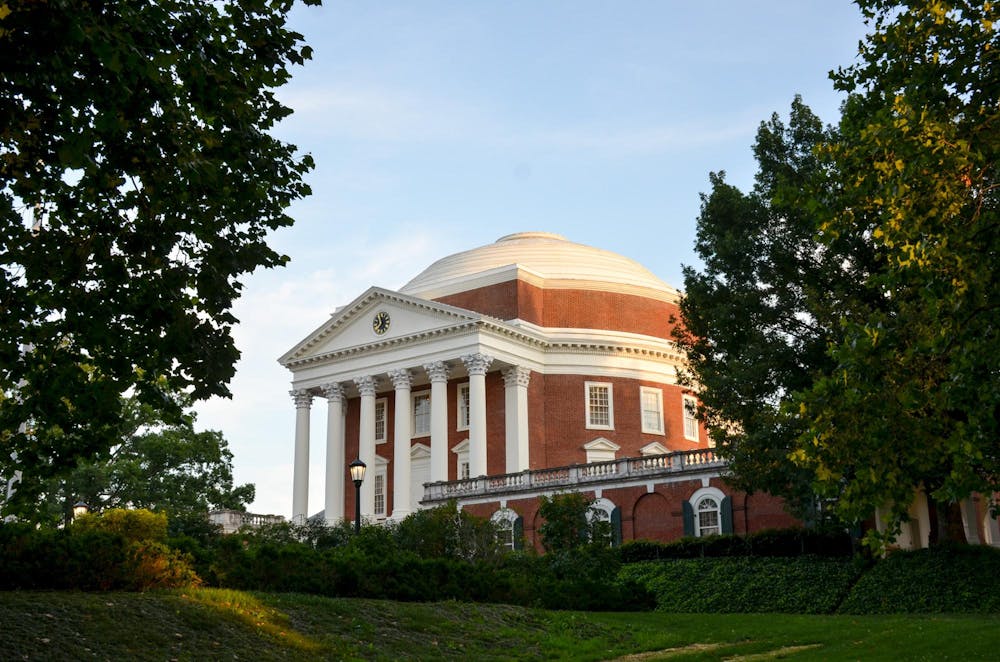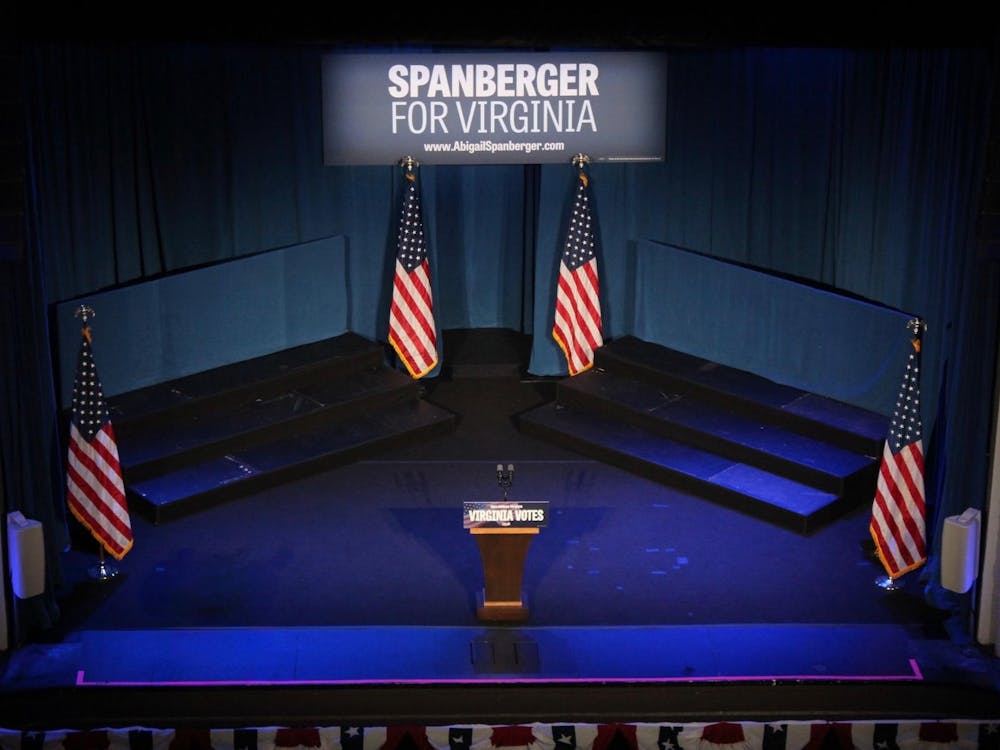The Justice Department suspended the remaining five investigations into the University in exchange for an acknowledgment to follow all civil rights laws, Interim University President Paul Mahoney announced Wednesday in an email to the community. Mahoney said that the investigations were suspended as a result of an agreement with the Justice Department which the University and the Department came to after months of discussions.
The University is the first public institution to reach an agreement of this nature with the Justice Department. In his email to the community, Mahoney said that he believes this agreement is the University’s best option in moving forward from the Justice Department’s investigations.
“I believe strongly that this agreement represents the best available path forward,” Mahoney wrote.
Between April and June of this year, the Justice Department sent a series of letters to the University which alleged that it was using affirmative action in its admissions policies and was noncompliant with President Donald Trump’s executive order to end Diversity, Equity and Inclusion initiatives. These letters also opened seven investigations into the University, two of which Mahoney announced had closed in September.
The suspension of these remaining five investigations means that the Justice Department will “hold in abeyance” its inquiries while the University works to improve its compliance with the Trump administration’s interpretation of civil rights law. The four-page agreement states that it does not symbolize an admission by either party, and that the University denies liability for the subject matter of the investigations. However, Mahoney said there is still work to be done to satisfy the terms of the agreement.
“In the agreement, U.Va. acknowledges its obligation to follow civil rights laws. The United States acknowledges the work we are doing to demonstrate full compliance and agrees to suspend the investigations while we continue that work,” Mahoney wrote.
The agreement also provides the United States the authority to determine, “in its sole discretion,” whether the University’s progress towards compliance is sufficient — if it is not found sufficient, the federal government will notify the University and, if problems are not addressed within 15 days, may pursue additional enforcement actions and resume its investigations.
“If the United States determines in its sole discretion after that time that U.Va. has not made adequate progress, the United States may terminate this Agreement and may pursue enforcement actions, monetary fines or grant or funding terminations as appropriate,” the agreement reads.
The agreement states that both parties agree to protecting academic freedom, upholding federal Civil Rights law as well as an agreement for the University to be considered “no less favorable” for federal funding than any other university. The agreement does not require the University to make any monetary payments, nor does it require an independent monitor which will report the University’s compliance to the government — two terms which Columbia University agreed to in its settlement with the Trump administration this summer.
It also affirms that the federal government does not have the authority to dictate the content of academic speech or curricula.
“U.Va. acknowledges its obligation, as a public institution subject to the First Amendment of the United States Constitution and supported by federal funds for educational and scholarly purposes, to maintain admissions, employment, discipline, and speech policies and practices that prevent the suppression of speech and discrimination based on political viewpoint,” the agreement reads.
To prevent this suppression and discrimination, the agreement says, the University must apply civil rights law according to the Justice Department’s guidelines. These guidelines are laid out in a document sent to the University and other recipients July 29, and restrict the use of protected characteristics as criteria for employment, program participation or resource allocation, among other requirements.
According to the agreement, Mahoney and the University’s next permanent president will be required to certify, under penalty of perjury, quarterly reports to the assistant attorney general which share the University’s progress towards compliance with civil rights law. The United States may make inquiries to determine the accuracy of this certification “as it deems necessary.”
Mahoney also shared a new page which was added to the University’s federal information website and includes answers to 16 “frequently asked questions” about the agreement, and encouraged community members to review the full agreement.
The agreement will last until Dec. 31, 2028 — upon that date, if the University has complied with the agreement’s terms, the Justice Department will close the remaining investigations. However, it says that nothing in the agreement prevents the United States from opening new investigations or conducting compliance reviews.
Columbia University, Brown University and the University of Pennsylvania each reached settlements with the Trump administration earlier this year. In these settlements, Columbia agreed to pay the federal government more than $220 million, while Brown will pay $50 million to state workforce development programs and the University of Pennsylvania did not make any payments to the government but agreed to other terms to restore its federal funding.
In his letter, Mahoney said that the University would continue to thoroughly review the University’s compliance with federal law.
“We will also redouble our commitment to the principles of academic freedom, ideological diversity, free expression, and the unyielding pursuit of “truth, wherever it may lead,” as Thomas Jefferson put it,” Mahoney wrote.
A spokesperson for the University had not responded to a request for comment at the time of publication.
This is a developing story. Check back for updates.







